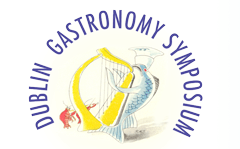Start Date
25-5-2020 12:15 PM
End Date
25-5-2020 12:45 PM
Description
Culinary arts is a neglected social and life science, which has historically been treated as a hands-on discipline with little academic input. Over the past decade there has been an influx of research in the discipline, specifically in culinary education across the world. Culinary arts is often relegated to the tourism sector, which fails to take into account that the culinary arts permeate through society, economy, culture and politics. It is also commandeered by the health and wellness sector, which has a singular focus and does not take into account the breadth and richness of the discipline. The late twentieth century brought about the start of a revolution in culinary education. This movement saw the advancement of culinary arts to the level of higher education in third level institutes and universities. It is crucial to draw from the cultural, political, and social context of culinary educational development, to understand the inconsistent provision of educational opportunities across the European Framework of Qualifications in some European countries. The traditional approach to training culinary professionals was limited to technical education, which focused on the narrow skills requirements for the industry. Higher education that utilises a blended liberal and vocational approach creates the opportunity for culinary practitioners to fulfil their potential beyond the traditional roles of industry operatives. Future culinarians should be critical thinkers with the opportunities and tools to contribute to the food and beverage industry through their creativity and innovation. Improving the education of culinary practitioners as well as the standing of culinary knowledge, will safeguard the food and beverage industry in these disruptive times. This paper will introduce ongoing research into European culinary higher education. The research will result in the development of a new curriculum and pedagogical framework for culinary arts. It is proposed that an integrated framework for higher education will support greater inclusion, collaboration, and cooperation between culinary education stakeholders across Europe. A multicountry case study will inform the framework. The provision of higher education programmes in culinary arts has grown significantly since the turn of the millennium (Mitchell et.al., 2013). However, the introduction of new programmes across Europe has been inconsistent. In order to understand why some European
countries provide educational opportunities from level six to level eight on the European Qualifications Framework (EQF) and others do not, it is essential to draw from the context of the education system. Culinary education is limited in some European Higher Education Area (EHEA) countries to EQF levels five and six. There exists significant pedagogical disparity across Europe. As such, there is a need for a Europe-wide standardised curriculum model to support higher education for culinary arts.
DOI
https://doi.org/10.21427/tasx-4222
Included in
Disrupting Culinary Education: Making a Case for a European Curriculum Framework for Culinary Higher Education
Culinary arts is a neglected social and life science, which has historically been treated as a hands-on discipline with little academic input. Over the past decade there has been an influx of research in the discipline, specifically in culinary education across the world. Culinary arts is often relegated to the tourism sector, which fails to take into account that the culinary arts permeate through society, economy, culture and politics. It is also commandeered by the health and wellness sector, which has a singular focus and does not take into account the breadth and richness of the discipline. The late twentieth century brought about the start of a revolution in culinary education. This movement saw the advancement of culinary arts to the level of higher education in third level institutes and universities. It is crucial to draw from the cultural, political, and social context of culinary educational development, to understand the inconsistent provision of educational opportunities across the European Framework of Qualifications in some European countries. The traditional approach to training culinary professionals was limited to technical education, which focused on the narrow skills requirements for the industry. Higher education that utilises a blended liberal and vocational approach creates the opportunity for culinary practitioners to fulfil their potential beyond the traditional roles of industry operatives. Future culinarians should be critical thinkers with the opportunities and tools to contribute to the food and beverage industry through their creativity and innovation. Improving the education of culinary practitioners as well as the standing of culinary knowledge, will safeguard the food and beverage industry in these disruptive times. This paper will introduce ongoing research into European culinary higher education. The research will result in the development of a new curriculum and pedagogical framework for culinary arts. It is proposed that an integrated framework for higher education will support greater inclusion, collaboration, and cooperation between culinary education stakeholders across Europe. A multicountry case study will inform the framework. The provision of higher education programmes in culinary arts has grown significantly since the turn of the millennium (Mitchell et.al., 2013). However, the introduction of new programmes across Europe has been inconsistent. In order to understand why some European
countries provide educational opportunities from level six to level eight on the European Qualifications Framework (EQF) and others do not, it is essential to draw from the context of the education system. Culinary education is limited in some European Higher Education Area (EHEA) countries to EQF levels five and six. There exists significant pedagogical disparity across Europe. As such, there is a need for a Europe-wide standardised curriculum model to support higher education for culinary arts.
